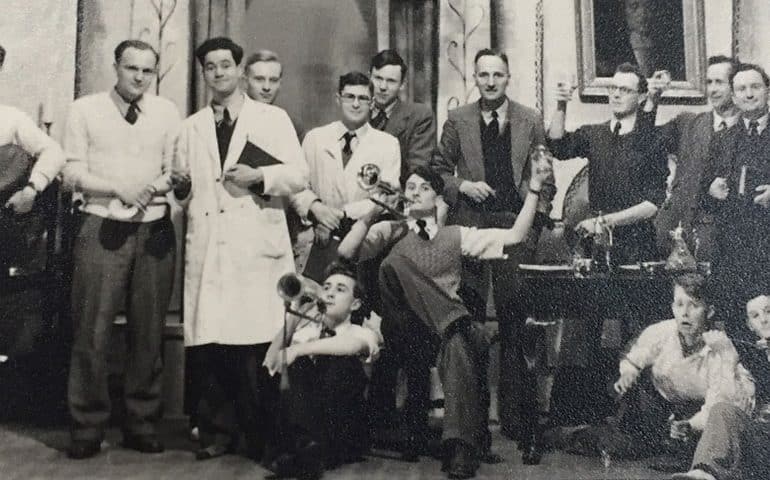
The annual staging of a School Play in recent years marks not the beginning of Drama as a major facet of life at QE, but its renaissance. Work recently undertaken on the archives has brought to the fore photos and documentation from large-scale productions throughout the 1950s.
These plays included Shakespeare (Henry IV, Part I, 1953; Julius Caesar, 1959) and perennial favourites, such as George Bernard Shaw’s Pygmalion (1951), as well as The Would-be Gentleman (1952, adapted from Molière’s Le Bourgeois Gentilhomme) and the now little-performed comedy by James Bridie, Mr Bolfry (1954).
The performances were reported in the Elizabethan magazine of the day and attracted proper, critical reviews from the Barnet Press – and even, on occasion, in the national papers. In 1958, an unnamed critic for the Times Educational Supplement reviewed Nightmare Abbey, Thomas Love Peacock’s 1818 gothic satire: “Queen Elizabeth’s School, Barnet, is blessed with a healthy and ambitious dramatic tradition, and cursed with a constricting stage.” The reviewer went on to praise the cast for “playing their extraordinary characters as if they believed in them, never allowing them to degenerate into burlesque”, while offering a couple of suggestions to the producer.
For most, if not all, of these plays, that post was filled by English teacher Jack Covington. A glance through the programmes reveals some other familiar names, too, including Captain Absolute in the 1950 production of Sheridan’s The Rivals played by one K R Cooper – current Governor Ken Cooper.
